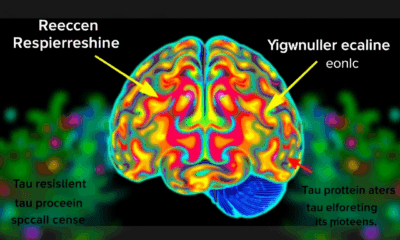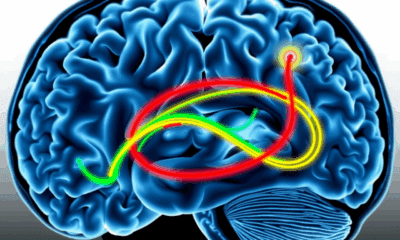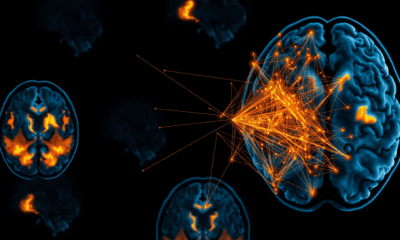While we try to keep things accurate, this content is part of an ongoing experiment and may not always be reliable.
Please double-check important details — we’re not responsible for how the information is used.
Child Development
Wake Up Feeling Refreshed: The Power of Natural Light on Morning Fatigue
Researchers tested whether introducing light into the bedroom before waking would improve morning wakefulness and found an amount of time that seems to help fight off fatigue and raise alertness most.

Alternative Medicine
Unlocking the Secrets of Cryorhodopsins: How Arctic Microbes Could Revolutionize Neuroscience
In the frozen reaches of the planet—glaciers, mountaintops, and icy groundwater—scientists have uncovered strange light-sensitive molecules in tiny microbes. These “cryorhodopsins” can respond to light in ways that might let researchers turn brain cells on and off like switches. Some even glow blue, a rare and useful trait for medical applications. These molecules may help the microbes sense dangerous UV light in extreme environments, and scientists believe they could one day power new brain tech, like light-based hearing aids or next-level neuroscience tools—all thanks to proteins that thrive in the cold and shimmer under light.
Autism
The Brain’s Hidden Patterns: Uncovering the Secret to Flexibility and Stability
A new study challenges a decades-old assumption in neuroscience by showing that the brain uses distinct transmission sites — not a shared site — to achieve different types of plasticity.
Breastfeeding
Singing to Babies Boosts Their Mood and Improves Quality of Life
Singing to your infant can significantly boost the baby’s mood, according to a recent study. Around the world and across cultures, singing to babies seems to come instinctively to caregivers. Now, new findings support that singing is an easy, safe, and free way to help improve the mental well-being of infants. Because improved mood in infancy is associated with a greater quality of life for both parents and babies, this in turn has benefits for the health of the entire family, the researchers say. The study also helps explain why musical behaviors may have evolved in parents.
-

 Detectors3 months ago
Detectors3 months agoA New Horizon for Vision: How Gold Nanoparticles May Restore People’s Sight
-

 Earth & Climate4 months ago
Earth & Climate4 months agoRetiring Abroad Can Be Lonely Business
-

 Cancer4 months ago
Cancer4 months agoRevolutionizing Quantum Communication: Direct Connections Between Multiple Processors
-

 Agriculture and Food4 months ago
Agriculture and Food4 months ago“A Sustainable Solution: Researchers Create Hybrid Cheese with 25% Pea Protein”
-

 Diseases and Conditions4 months ago
Diseases and Conditions4 months agoReducing Falls Among Elderly Women with Polypharmacy through Exercise Intervention
-

 Chemistry3 months ago
Chemistry3 months ago“Unveiling Hidden Patterns: A New Twist on Interference Phenomena”
-

 Albert Einstein4 months ago
Albert Einstein4 months agoHarnessing Water Waves: A Breakthrough in Controlling Floating Objects
-

 Earth & Climate4 months ago
Earth & Climate4 months agoHousehold Electricity Three Times More Expensive Than Upcoming ‘Eco-Friendly’ Aviation E-Fuels, Study Reveals





























